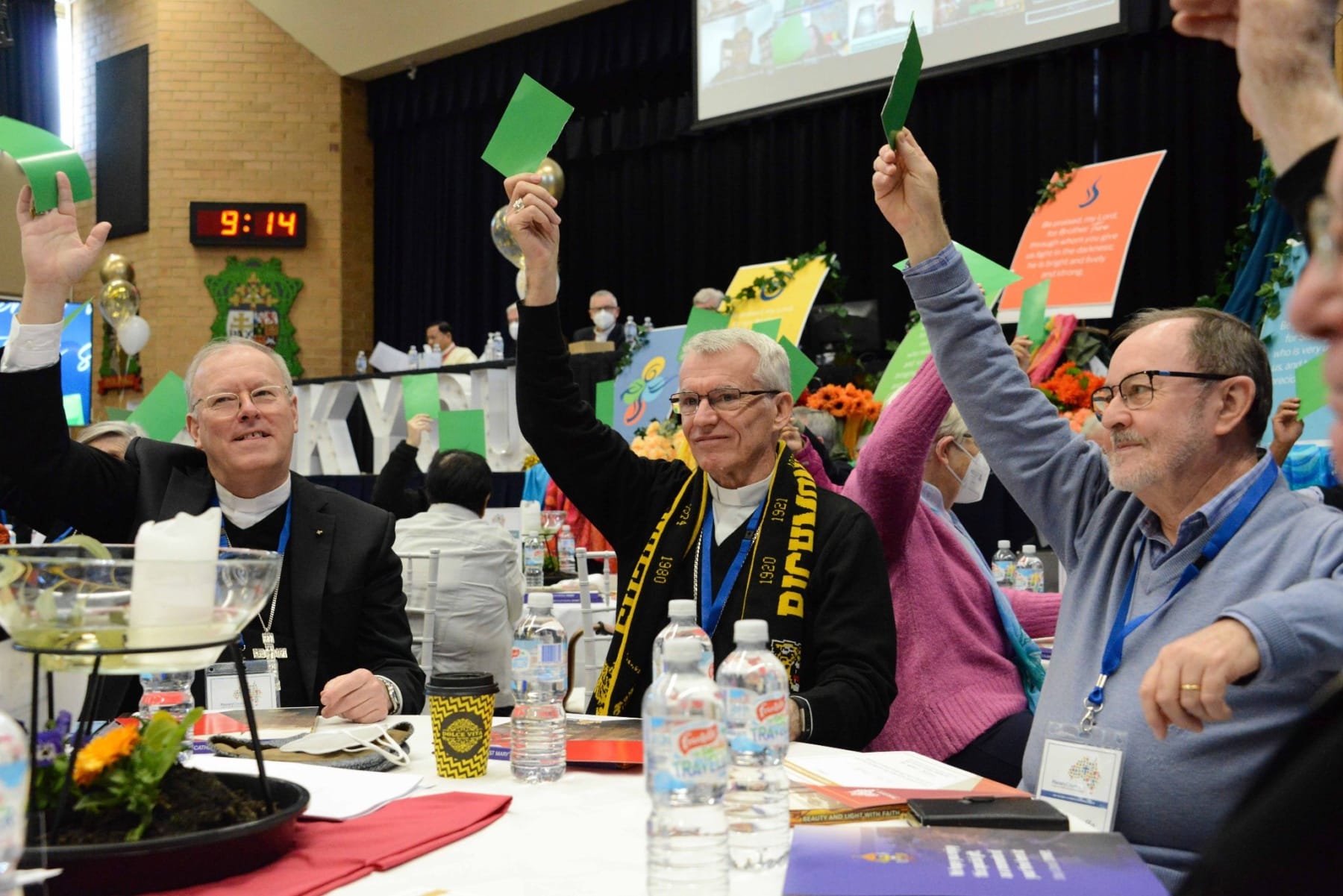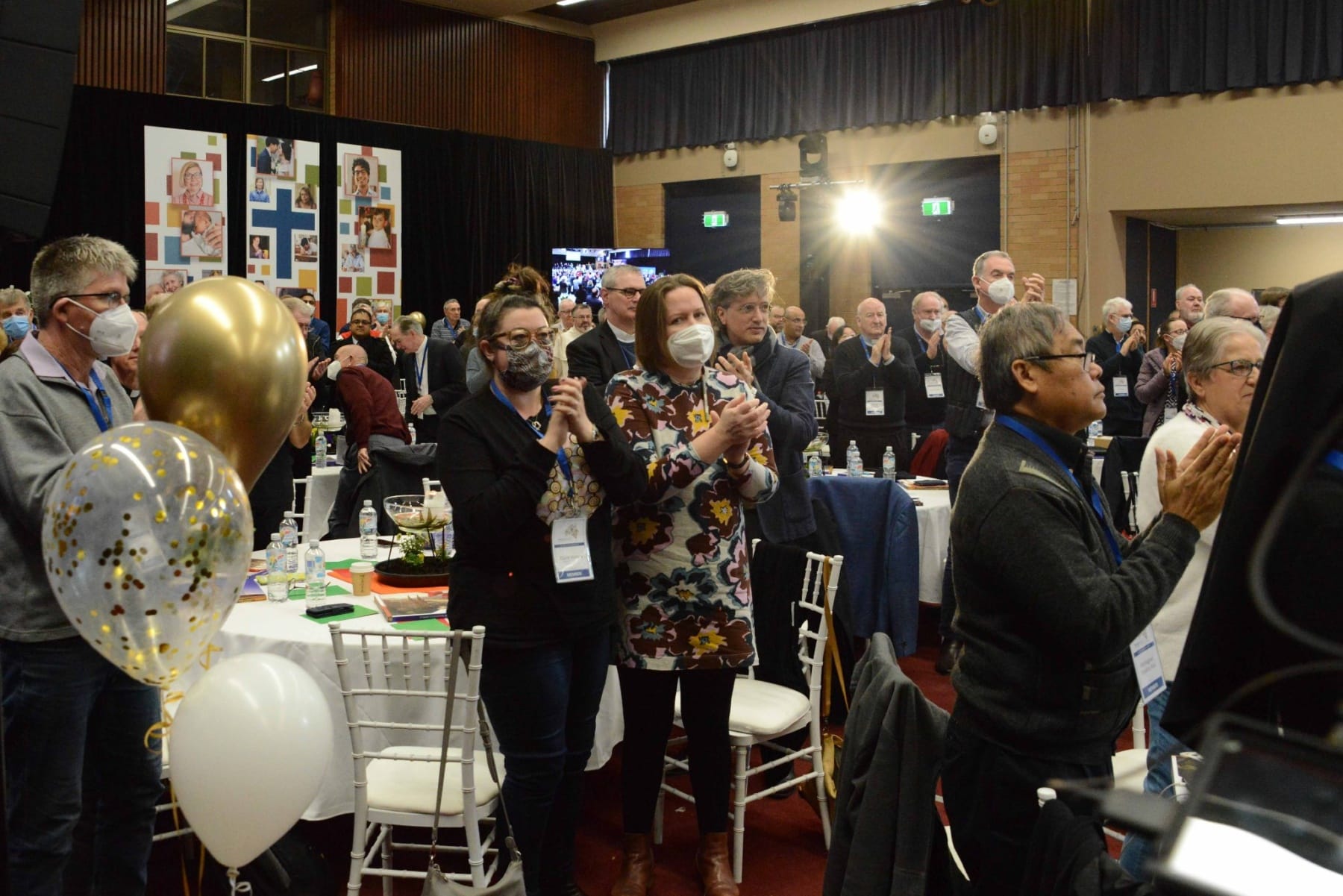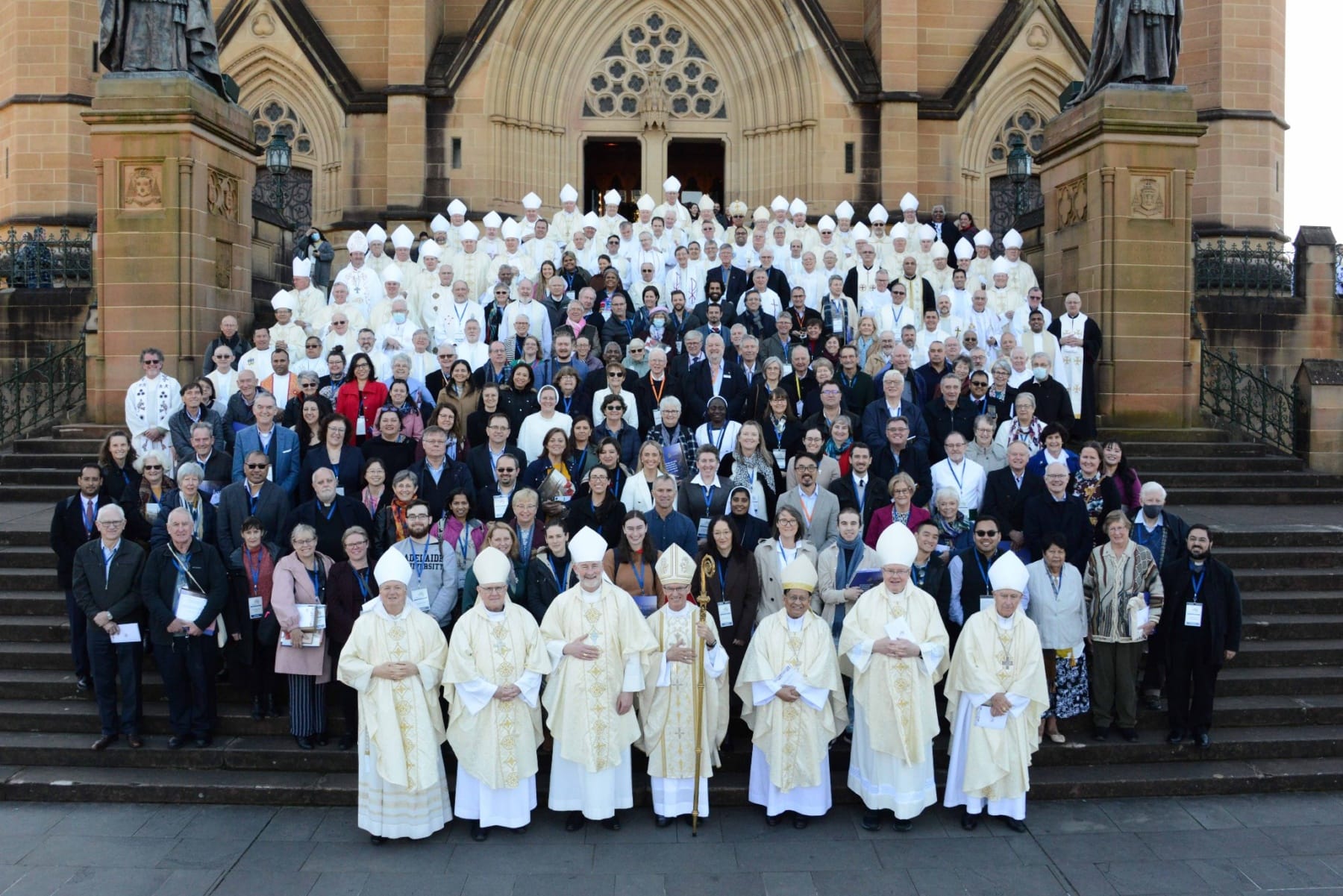Plenary Council Outcomes
The Fifth Plenary Council of Australia has concluded with agreement on all motions including (Part 4.5) ‘that should the universal law of the Church be modified to authorise the diaconate for women, the Plenary Council recommends the Australian Bishops receive this possibility with openness and examine how best to implement it in the context of the of the Church in Australia’.
There was some disquiet amongst Council lay members when the bishops rejected the original motion. However, some revisions were made and the motion was accepted later in the week.
Council Members confirmed the decrees of the Plenary Council, which were then signed by the bishops present. The decrees will be sent to the Holy See following the November meeting of the Australian Catholic Bishops Conference. Once recognitio is received by the Holy See, the decrees will be implemented and become the law of the Church in Australian six months later.
Also, on the final full day of proceedings on Friday, Bishop Paul Bird CSsR said members of the Fifth Plenary Council should persevere in their prayers to the Mother of God. Speaking at a Votive Mass (special intention) of the Blessed Virgin Mary, he said, “Just like the early Christian community who gathered in prayer with the Blessed Virgin, the mother of Jesus is with us, as she was with those first disciples.”
Mary is “a model of Christian living” and the “mother of the Church” in all of her traditions.
“Our faith in Christ and our trust in the prayers of Mary unite us as one Catholic Church, East and West,” Bishop Bird said. “In all our Catholic liturgies, of East and West, we rejoice that God has looked with such kindness on Mary and blessed her as mother of the Saviour and we ask her to intercede for our salvation and the salvation of the world.”
Photos courtesy Fiona Basile
Some of the main motions/points to be passed included:
Part 1 The Plenary Council adopt the general introduction. This includes an apology to Aboriginal and Torres Strait Islander people and endorsing the Uluru Statement from the Heart.
Part 2 Apology to survivors of abuse. That the Plenary Council says sorry to the victims and survivors of abuse, their families and communities; and b. recommits the Church to respond with justice and compassion to those who have suffered from the trauma of abuse.
Part 3 Called by Christ – Sent Forth as Missionary Disciples. That the Plenary Council adopt the introductory statement of Part 3. Pope Francis describes four key characteristics in Evangelii Gaudium of an evangelising parish. For example, it is “in contact with the homes and the lives of its people” and it “encourages and trains its members to be evangelisers.”
Part 4 Witnessing to the Equal Dignity of Women and Men That the Plenary Council through formal policies and intentional practice, the experiences and perspectives of women, including women who exercise ministry, are heard, considered and valued at local, diocesan and national levels and b. that women are appropriately represented in decision-making structures of Church governance at the parish, diocese or eparchy, and national level, and in Church agencies, entities, and organisations.
Part 5 Communion in Grace: Sacrament to the World. That the Plenary Council affirms the fundamental importance of a sacramental and spiritually rich and joyful prayer life that is transformed, and transforming, and inclusive.
Part 6 Formation and Leadership for Mission and Ministry. That the Plenary Council adopts the introductory statement of part 6 to meet the formation needs of the present and future. Therefore, commits the Church in Australia to developing and committing to a culture of life-long faith formation.
Part 7 At the Service of Communion, Participation and Mission: Governance. That the Plenary Council affirms that governance in the Catholic Church should be exercised in a synodal manner, with the appropriate participation of all the baptised.
Part 8 Integral Ecology for the Sake of Our Common Home. That the Plenary Council encourages all Catholic people, families, parishes, dioceses, eparchies, religious institutes, educational institutions, and other Catholic organisations to accept Pope Francis’ invitation to join the Laudato Si’ Action Platform.
Part 9 The Implementation Phase of the Fifth Plenary Council. That the Plenary Council adopt the following steps for ensuring the effectiveness and accountability of the Implementation phase, to take place over a period of five years: a. the Bishops Commission for the Plenary Council will be responsible for establishing terms of review for the Plenary Council’s implementation;
- a roundtable body such as that proposed in the motion at paragraph 96 will be responsible for co-ordinating the review;
- interim reports will be published in 2023 and 2025; and
- the final review report will be published five years after the Second Assembly, in 2027.
We encourage you to share and use this material on your own website. However, when using materials from Majellan Media’s website, please include the following in your citation: Sourced from majellan.media
Click to share
During the second assembly, more than 35 motions were put to a consultative and a deliberative vote. Those motions that received a qualified majority – two-thirds of voters eligible and present – were passed by the Plenary Council. They were confirmed as the decrees of the Plenary Council.
Click on the links below to open the decrees, as confirmed.
After the November meeting of the Australian Catholic Bishops Conference, the decrees will be sent to the Apostolic See. Once recognitio is received from the Holy Father, the decrees will be promulgated and become the law of the Church in Australia six months later.




